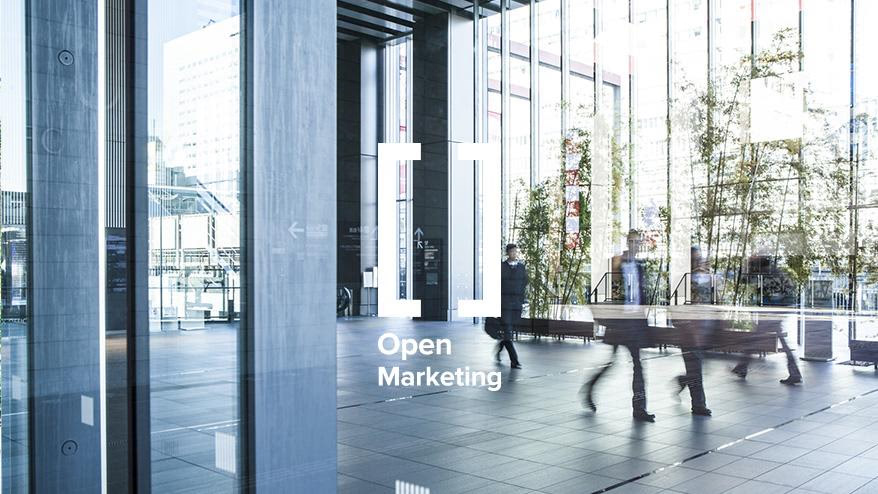みなさん、こんにちは。モノサス代表の林です。
Open Marketingに取り組むためのStep.1として
「顧客を信じる」ということを3回にわたってお伝えしてきました。
前回は
- 顧客がなぜ他社ではなく自社の商品・サービスを買い続けてくれているのかを固定客にデプスインタビューすることで明らかにする
- インタビューは、「自社の商品・サービスが好きで、頻度高く、継続して利用している顧客」にすべきである
- インタビューの際は顧客の初回購買動機と継続購買動機を聞きだすが、言語化されたものをすぐに鵜呑みにするのではなく、様々な角度から注意深く聞く必要がある
という内容でした。
今回は、顧客インタビューの内容をどのように分析すればよいのかについて
お話ししたいと思います。
顧客インタビュー分析の基本的な流れ
顧客インタビュー結果の分析方法ですが、
①社内の適切なメンバーに参加してもらう
②きちんとスキルを持ったファシリテーターを用意する
のふたつを守ったうえで、ワークショップを行うのが有効です。
顧客インタビューの内容を、メンバーと読み合わせながら、
印象的な顧客の発言をピックアップし、議論をしていきますが、
社内の適切なメンバーの参加なしには意義ある分析は不可能です。
適切なメンバーとは、
- 普段、商品・サービスを顧客に直接提供しているメンバー
- 商品やサービス開発に深く関わっているメンバー
- コールセンターなど顧客との接点を多く持っているメンバー
のように、なるべく商品やサービス、そして顧客に深く関わっている
メンバーのことです。
逆に、経営判断に関わっているメンバーの参加は慎重に判断する必要があります。
例えば社長がワークショップに参加してしまうと、
社長の発言のひとつひとつが他の参加者の発言に影響を及ぼしてしまい、
発言の多様性が失われてしまいます。
参加する場合でも、できればオブザーバー参加とし、可能な限り発言は控えて
いただいたほうがよいでしょう。
また、ワークショップ実施の際には、きちんとスキルを持った
ファシリテーターの存在が欠かせません。
思い込みや、自己判断をせず、できるだけ客観的に
その場をファシリテートできる人が最適です。
そういう意味では、ファシリテーターに外部の方を起用するのは非常に有効です。
自分たちの行動の奥にある、動機と価値観を探る。
ワークショップでは、顧客インタビューの内容の中から
印象的な言葉をピックアップし、それをもとに
参加しているメンバーで議論をしてゆきます。
この議論において重要なのは、
「なぜ顧客がそのような発言をしたのか」をつきとめることです。
議論すると言っても、推測や、推察ではいけません。
顧客の発言には当然ながら理由がありますが、
その理由の大半は商品・サービス提供側のなんらかの行動にあります。
顧客からの発言を引き出した自分たちの行動を議論の中で特定するのです。
- 商品力に理由があったのであれば、その商品を開発する際にどのようなことをして開発をしたのか
- 顧客対応やサービス内容に理由があったのならば、具体的にこちらはどのようなことをしたのか
また、もうひとつ重要なのは、なぜ自分たちがその行動をとったのかということです。
行動には必ずその裏付けとなる動機、さらには動機の源泉となる価値観があります。
それらを顧客の発言をトリガーに議論してゆきます。

図にすると上記のようになります。
顧客は実際に起こったことをもとに発言されますので、事実として捉えます。
そして、その事実(出来事)が起こるためにはその原因となった行動があり、
行動には動機があり、動機にはさらにそれを生み出している価値観があります。
つまりは、顧客インタビューから継続購買動機となっている事実を
ピックアップし、そこを掘り下げていくことで、顧客に評価されている
自社の価値観までを辿ってゆくことができるのです。
ここでひとつの疑問が湧く方もいらっしゃるかもしれません。
「自分たちの行動の動機や価値観の話であれば、わざわざ顧客にインタビューをしなくても
自分たちだけで議論できるのではないか。」
という点です。
例えばこの議論を、
「固定客に評価されていると思われる自社の行動をピックアップし、
なぜそのような行動をとっているのかを教えてください」
という社内のメンバーへのアンケートや発言だけをもとに行うと、
普段、社内で意識的に周知徹底していることは抽出できますが、
無意識に行っていることは議論の俎上にのせることができません。
しかし、この無意識に行っていることが重要なのです。
顧客インタビューは、固定客の継続購買動機となっている自社の無意識の行動を
抽出するために行うと言っても過言ではありません。
ではなぜ無意識の行動が重要なのでしょうか。
無意識の行動にこそ価値観が隠れている。
それを考えるために、少しの間、
これをお読みのあなた自身のことを基準に考えてみてください。
もしあなたが、以下の3つの質問をされたらどのように答えるでしょうか。
「あなたの友人はなぜあなたと長く友人関係を続けていると思いますか?」
「あなたのことを一番評価してくれている上司は、なぜあなたのことを
認めていると思いますか?」
「あなたのことを最も評価してくれているお客さまは、なぜ長年にわたって
あなたとの関係を続けていると思いますか?」
この問いに流暢に答えられる人は、そんなに多くないのではないでしょうか。
(逆にスラスラと答えられるのも気持ちわるいですよね)
そして、この問いに対して想像で答えることは意味を持ちません。
さて、無意識の行動が重要な理由ですが、
逆に意識的な行動のことを考えたほうがわかりやすいかもしれません。
例えば、先ほどの質問に対して
「いつも私はあの人に対してこうふるまって、評価されるようにしている」
という回答があった場合はどうでしょうか。
もしかしたら特定の人に対しては効果的かもしれませんが、
複数の相手に対してこのような行動をとり、
しかも評価されるというのは非常に難しいことでもあります。
また、評価されるように行動するということは、即ち相手の価値観に
あわせて行動するわけですから、大きな問題点として、
自分自身というものがなくなってしまいます。
自分自身を無くして得た評価は、果たして自分の評価と言えるのでしょうか。
また、それを家族、友人、仕事仲間、顧客に対してすべて個別に
やりかたを変え、しかもうまくやれるものではないと思います。
つまり実際には、自分の長所、優れた点、人を惹きつける点というのは、
無意識の行動の中に眠っていて、その行動には動機があり、
その動機を生み出す価値観があり、他人はその価値観の部分を
あなたの行動から感じ取り、あなたのことを評価してくれているのです。
だからこそ、それを見つけるには他人の助けが必要です。
そしてそれは企業にとっても同じことが言えます。
顧客へのウケを狙って急ごしらえで考えたサービスや、商品、プロモーションは
一過性の顧客は連れて来てはくれても、
長いおつきあいのできる固定客に来ていただくことはできません。
なぜならあなたの会社自身が、急ごしらえの取り組みで集めた顧客を
つなぎとめ続ける行動をとることができないからです。
長年様々な企業とのプロジェクトを通して気づいたのは、
固定客は一過性のプロモーションや、その場限りのサービスではなく、
継続的な企業とのやりとりの中で、企業の価値観を感じ取り、
そこに魅力を感じて企業の固定客となっていることです。
しかし、普段は多くの企業が無意識に行動していることが多いため、
固定客が感じる自社の価値に気づくことができません。
そこで、顧客インタビューをもとにしたワークショップをおこなうことで、
自社の行動とその動機、そしてその奥にある価値観が体系化され、
可視化することができるのです。
これまで4回のテーマは「顧客を信じる」でした。
あなたの会社のまわりには、一過性のプロモーションや
その場限りのサービスではなく、あなたの会社の価値観を感じとり
寄り添ってくれている顧客がすでにいるはずです。
ある意味では、あなた以上にあなたの会社のことを見てくれている
顧客のことを、信じる気持ちになっていただけたでしょうか。
今月も最後までお読みいただきありがとうございます。
来月はStep2に進みたいと思います。

